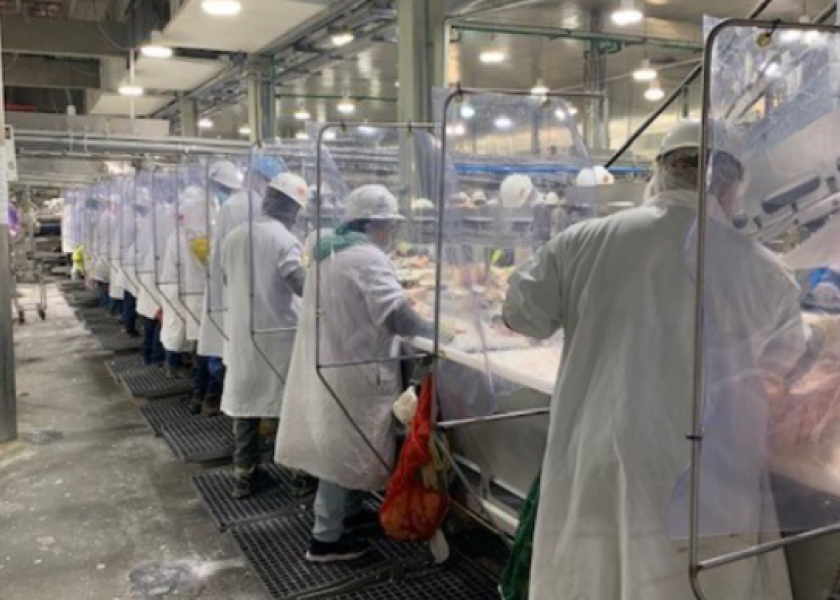COVID-19: Kansas Officials Actively Assisting Packing Plants, Workers

Kansas officials are actively working to keep the state’s beef packing facilities operational in the face of the ongoing coronavirus pandemic.
Kansas Secretary of Agriculture Mike Beam said on AgriTalk (April 23, 2020) that Kansas Governor Laura Kelley and officials from the State Department of Health and interior are “engaging multiple times a day with the processing facility representatives.”
Beam also emphasized Kansas officials are engaged with the Centers for Disease Control and the Department of Health and Human Services in Washington, D.C., “pointing out to the folks in DC that this is a critical infrastructure, despite other plants in other regions of the nation having shut down temporarily. These plants in Kansas are still trying to operate and are going above and beyond the guidelines of CDC, to keep in operation.”
As of Wednesday (April 24), Beam said all of the Kansas beef facilities were operational, though not at full capacity. He said it is critical to maintain that harvest capacity while still protecting the health of the employees and the communities where they live.
Four of the nation’s largest packing plants are located in western Kansas, including Tyson Foods near Garden City, Cargill in Dodge City, and two National Beef plants, one in Liberal and one in Dodge City. A fifth plant, Creekstone Farms in Arkansas City, harvests 1,200 head per day. Together the five plants have harvest capacity of 24,000 head per day, representing more than one-fifth nation’s total beef harvest capacity.
Beam told AgriTalk host Chip Flory Kansas acquired some “quick tests” for COVID-19 that were deployed to four counties – Finney, Ford, Seward and Lyon. Those tests allowed the packing companies to “know within 15 minutes if an employee was positive or not.” He said the companies and the state has been able to ramp up testing to quickly determine who is positive.
Weekly cattle harvest data shows a significant decline due to issues packers have had with the coronavirus. This week boxed beef prices spiked again while prices paid to producers declined. Beam said that underscored the need to keep the packing plants operational.
“I think the next three weeks are crucial, because (the packers) are not at 100%,” Beam said. And sustaining, at least some level and getting back up will be crucial because we're not harvesting the numbers that we need to stay current. It would also help if the plants in other states that have been shut down are able to come back online soon.”
Beam also confirmed state officials are working on a multifaceted plan to isolate or quarantine those who test positive, possibly in vacant facilities such as junior college dormitories in counties where packing plants are located and clusters of COVID-19 positives exist.
“The positive tests in the state over the weekend were spread to four counties – Seward, Ford, Finney and Lyon Counties,” Beam said. “There are several clusters, not just at the beef facilities. The challenge is when those who are positive and those who are asymptomatic are in isolation, they’re still in the community. So, it is essential whether they are showing symptoms or not to isolate them.”
Kansas officials are “trying to make arrangements with those communities to provide – and they’ve got federal assistance as well – to provide housing and food and care for those who are positive so they’ve not back in their homes with their families spreading (the disease).”
Beam said the “ink has not been dried” on such arrangements, and no one is in isolation yet, “but that should come online soon.”
As of Wednesday, April 22, at 5 p.m., the Kansas Department of Health and Environment reported 55 cases of COVID-19 in Finney County, 208 in Ford County and 84 in Seward County, the three western Kansas counties where the packing plants are located. Lyon County, in east central Kansas, reported 92 cases.







